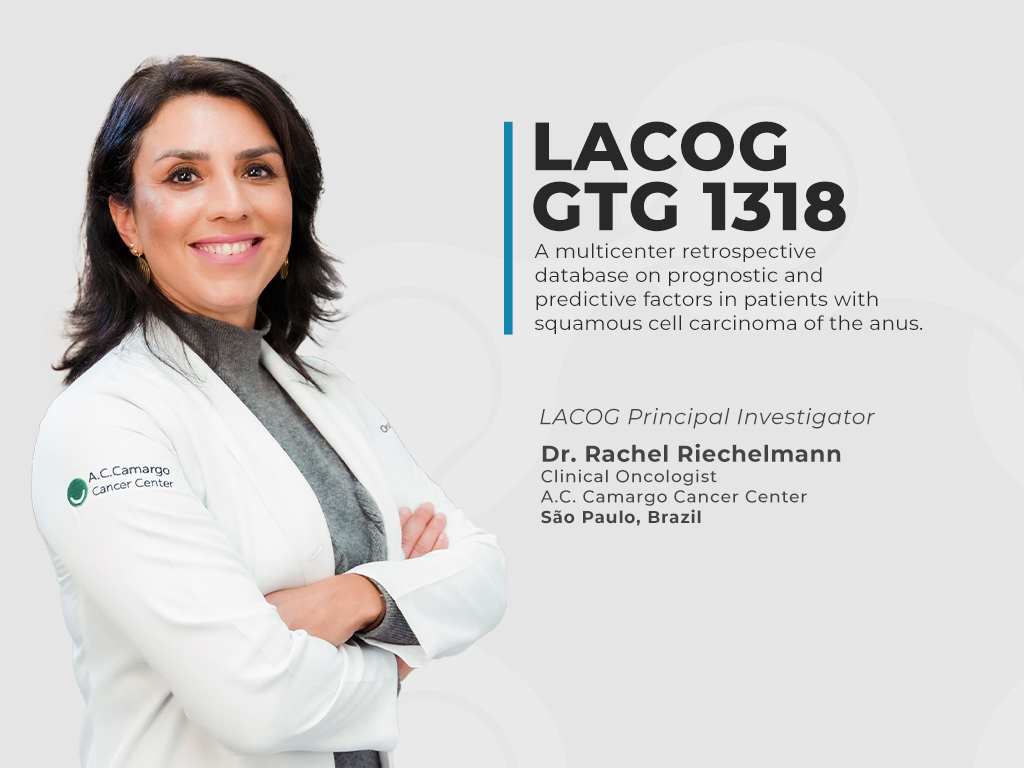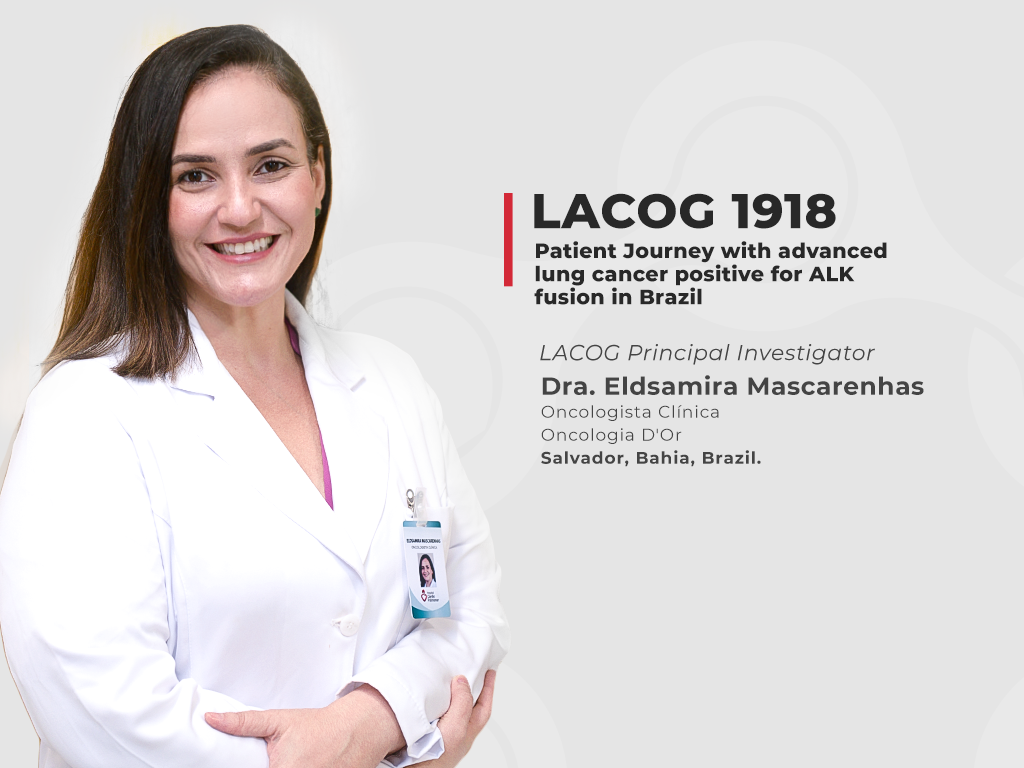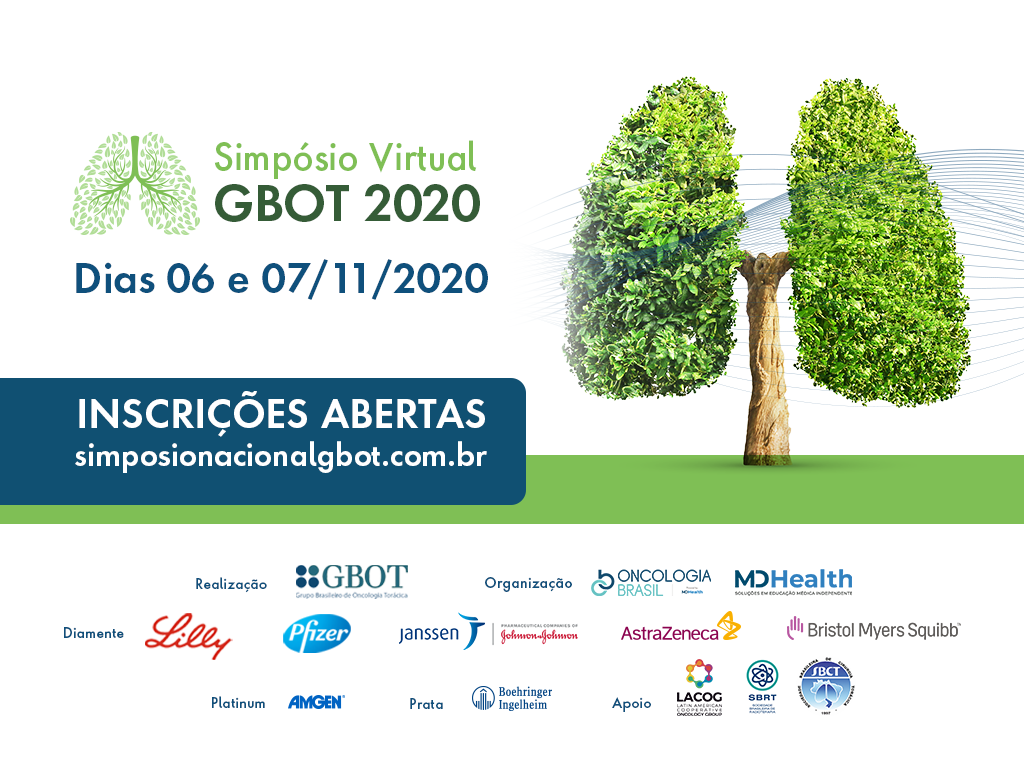LACOG supports studies on rare gastrointestinal tumors
Currently, the LACOG Gastrointestinal Cancer Group has two ongoing studies. The objective of these studies is to create databases of prognostic and predictive factors of patients with neuroendocrine tumors (LACOG 0119) and of patients with anal cancer (LACOG / GTG 1318 - CCA). Both studies are being conducted in partnership with the Gastrointestinal Tumors (GTG) Brazilian group. According to Dr. Rachel Riechelmann, head of Clinical Oncology at the A.C.Camargo Cancer Center, president of the LACOG Gastrointestinal Cancer Group and principal investigator of LACOG 0119 and LACOG / GTG 1318 - CCA studies , these studies will help us to create an epidemiological database of two rare diseases. “Currently, there is no Brazilian or Latin American epidemiological data of neuroendocrine tumors and anal cancer. We have no information on what the most common histologic tumor subtype is, its prognosis, overall and progression-free survival rates in our region. Studies like these provide data regarding the characteristics of patient populations which help to define research strategies that are focused on these specific subgroups.” Studies as the ones mentioned above would not be practicable without a partnership with LACOG which, according to Dr. Riechelmann, is the only collaborative research group in Latin America. “In fact, it
Retrospective Epidemiological study of Locally Advanced Non-small cell Lung CancEr patients in Brazil – RELANCE (LACOG 0118)
Tomas Reinert, Susana Ramalho, Vivian CA Vasconcelos, Leonardo R Silva, Ana Elisa R Silva, Camila A Andrade, Maria Beatriz PL Kraft, Guilherme P Coelho, Jovana Mandelli, Monique Binotto, Cesar Cabello, Geisilene RP Silva, Jose Bines, Carlos H Barrios, Matthew J Ellis and Marcia S Graudenz.
The lack of epidemiological data on bladder cancer led to an investigator-initiated study by a LACOG investigator
The incidence of cancer and its mortality rates have been increasing worldwide, especially in developing countries due to their growing and aging population. “Bladder cancer is the tenth most common cause of cancer across the world, with 549 thousand new cases and 200 thousand deaths estimated each year”, explains Dr. Vinícius Carrera Souza, an oncologist from the Instituto D'Or - Bahia and a researcher at LACOG. According to Dr. Souza, little is known about the epidemiology, clinical-pathological characteristics, standard treatments and outcomes of advanced urothelial carcinoma of the renal pelvis, ureter, bladder or urethra in Latin America. “The latest estimates indicated that the incidence of bladder cancer is 7 per 100,000 in men and 2.3 per 100,000 in women. However, these data are probably underestimated due to scarcity of cancer records. Fortunately, there has been an increased interest in clinical and pathological information collection regarding metastatic urothelial cancer in Latin America.” Considering that, Dr. Souza began the Bladder Cancer Registry study (LACOG 1518). The study aims to create a Latin American multicenter database to analyze epidemiological, clinical and pathological data, treatments, outcomes and biological information from patients with recurrent / metastatic urothelial cancer. The study will cover 204 patients from Brazil, Mexico, Argentina, and
The Red Journal publishes a study by LACOG’s Head and Neck Cancer Group
In September 2020, investigators from the LACOG Head and Neck Cancer Group published the results of the study: “Health-related quality of life outcomes in head and neck cancer: results from a prospective, real-world data study with Brazilian patients treated with intensity modulated radiation therapy, conformal and conventional radiation techniques” in the well-known scientific periodical, International Journal of Radiation Oncology – Biology – Physics. The study involved 570 Brazilian patients with head or neck cancer and assessed the impact of three different types of radiotherapy: Intensity-Modulated Radiation Therapy (IMRT), conformational radiotherapy and conventional radiotherapy, on patients’ quality of life and overall survival. According to Dr. Marcos Santos, radio-oncologist at the CONFIAR-Goiânia Group and the principal investigator who carried out the study for the group, having a paper accepted for publication shows that Brazil is now playing an active part in producing the real world data that is relied upon by regulatory agencies around the world when making decisions on technology. “It also means that, if we invest in encouraging the use of IMRT to treat head and neck cancer, we can be confident that, depending on the amount, it will be of real help to patients.” The findings of the trial confirm that
The challenges of lung cancer patient’s journey: from diagnosis to treatment
The delay between diagnosis and the beginning of a disease treatment is a reality for many patients, oncological or not. Such delay has a significant impact on the quality of life and, in many cases, on overall survival of patients. Seeking to describe the journey of patients with ALK-positive non-small cell lung cancer, Dr. Eldsamira Mascarenhas, a clinical oncologist at Oncologia D'Or Salvador, along with LACOG, is coordinating the observational study: The journey of patients with ALK-positive advanced lung cancer in Brazil (LACOG 1918). “We wish to understand what patients with ALK-positive advanced lung cancer face from the moment they receive the diagnosis until the beginning of treatment. With this information, we will be able to act more effectively and therefore provide earlier diagnosis and therapy”, she explains. According to Dr. Mascarenhas, studies like this are important because there has been a significant increase in cancer incidence over the years. “Developing a clinical research will answer important questions we have about this population.” Dr. Mascarenhas believes that clinical research transforms society around the world. However, Brazil still does not play a prominent role in this scenario since we have had little participation in the development of studies. For that reason, the work
The GBOT holds a virtual symposium to discuss the latest developments in the diagnosis and treatment of lung cancer
The Brazilian Thoracic Oncology Group (GBOT) held its 2020 Virtual Symposium on November 6th and 7th. For the first time, the event took place entirely online. “Due to the unusual format of the event, it was a challenge for the group and the board to develop a program that would be captivating, especially considering the amount of online lectures and symposia we have had over the last few months. However, I think that this format made the event more interactive because it enabled the participants to discuss topics and share their own experiences, rather than just listen to the lectures,” explains Dr. Ana Gelatti, the GBOT vice president. The aim of the symposium is to discuss the main developments in lung cancer diagnosis and treatment, as well as the latest evidences on tumor markers, new drugs and therapies. Around 400 pulmonologists, radio-oncologists, thoracic surgeons, clinical oncologists, and other specialists participated in the event. Dr. Gellati especially highlights the Sessions of Controversies regarding the management of patients with lung cancer. Osimertinib in adjuvant treatment, the relationship of two immunotherapies in first-line lung cancer treatment and the assessment of patient N2 and the best approach in their case were some of the topics discussed
A study to observe patients characteristics, tratments patterns and outcomes in patients with newly diagnosed breast cancer in Latin America – LATINA Breast (LACOG 0615/ MO39485)
Gustavo Werutsky, Cynthia Villareal-Garza, Henry Gomez, Juan Manuel Donaire, José Bines, Luis Fein, Mariano N. Carrizo, Facundo Zaffaroni, Paulo Ricardo Nunes Filho, Carlos H Barrios - 2020 San Antonio Breast Cancer Virtual Symposium; December 8-11, 2020
Influence of physician’s lifestyle on the prescription of healthy habits to breast cancer patients (LACOG 1218)
Renata Cangussú, Eldsamira Mascarenhas, Taiane F Rebelatto, Paulo R Nunes, Rafaela G de Jesus, Facundo Zaffaroni and Gustavo Werutsky - 2020 San Antonio Breast Cancer Virtual Symposium; December 8-11, 2020
The socioeconomic impact of breast cancer in Brazil: An analysis of AMAZONA III cohort study
Gustavo Werutsky, Daniela Dornelles Rosa, Carlos Barrios, Eduardo Cronemberger, Geraldo Queiroz, Jose Bines, Mahira Lopes Rosa, Rafaela Gomes, Ana P Heck, Laura Freitas, Arthur F da Silva, Matheus Rodrigues, Andre P Fay and Sergio Simon - 2020 San Antonio Breast Cancer Virtual Symposium; December 8-11, 2020
Save the Date for GBOT’s 2020 Online Symposium
The Brazilian Group for Thoracic Oncology (GBOT) is holding the “GBOT 2020 Online Symposium”, on November 6th and 7th, 2020 – an entirely online format for the first time.This well-established event is designed as an opportunity to discuss the main advances in the diagnosis and treatment of lung cancer, as well as the latest evidence on tumor markers and the development of new drugs and treatments. If you are a clinical oncologist, thoracic and oncology surgeon, radiotherapist, pulmonologist, pathologist, or other professional working in thoracic oncology, sign up and participate! Sign up here: http://www.simposionacionalgbot.com.br/








